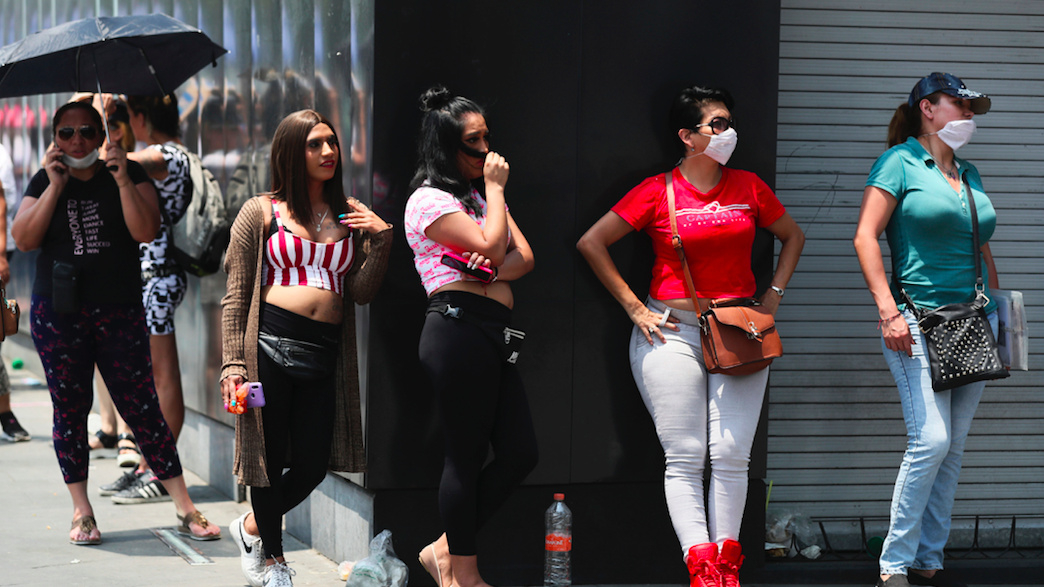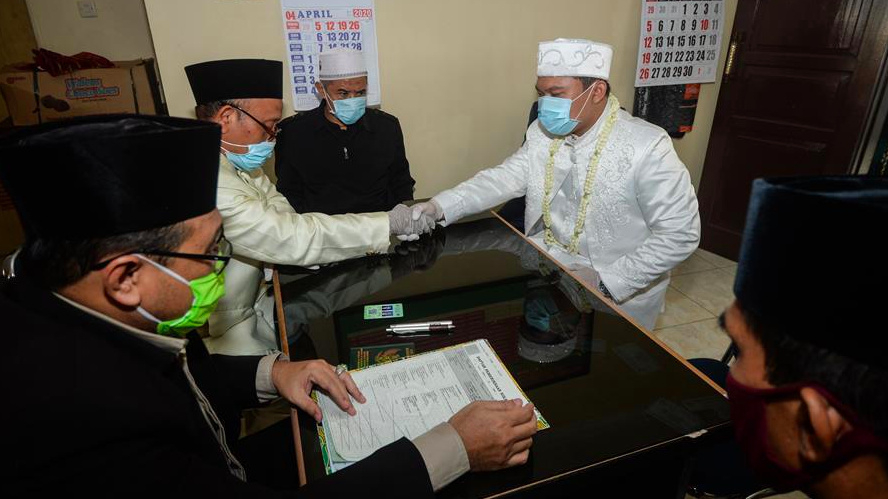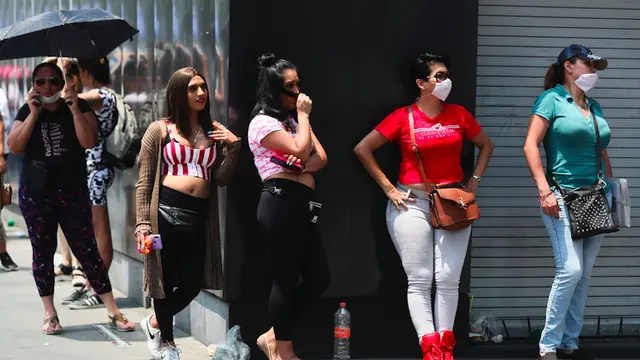
Workers stand in line as they wait to receive a monetary incentive offered by the mayor to stay home in a measure to curb the spread of COVID-19, in Mexico City, Mexico, April 4, 2020. /AP
Editor's note: Ravish Bhatia was a Yenching Scholar at Peking University and hosts the Use Case podcast. The article reflects the author's opinions and not necessarily the views of CGTN.
At this point in the ongoing global COVID-19 crisis, there is almost no one who believes that the world economy can emerge unscathed. The big question instead, is if emerging markets, which according to the International Monetary Fund (IMF) account for approximately 60 percent of the world economy on the basis of purchasing power, can emerge as unscathed as the developed world.
According to the Institute of International Finance approximately 70 billion U.S. dollars exited leading emerging markets, like India, China, Brazil and South Africa as investors rushed towards safer havens like gold, U.S. government bonds and of course, cash. Just last year, these economies had witnessed a net inflow of 79 billion U.S. dollars. Imagine that – almost a whole year's worth of investments wiped out in two months!
Not to forget, many of these markets were already under immense financial stress as governments tried to revive slowing economies and tried to clean up their books. In addition to slowing consumption and weak industrial demand, many were also facing high levels of debt and shortages in revenue collection. India, for example has been grappling with a worsening fiscal deficit for the last year.
This makes it harder for emerging economies to respond to the economic crisis by increasing government spending and dolling out large financial aids, something that the developed world can afford to do better. Some nations have gone out and released fiscal packages as high as seven percent of their GDP.
On March 17, the U.S. announced a one trillion U.S. dollar stimulus package and on the same day French president Emmanuel Macron guaranteed loans worth 335 billion U.S. dollars for businesses.
Just a few days before that Germany had announced a stimulus package of 610 billion U.S. dollars for companies hit by coronavirus while the UK sanctioned 424 billion U.S. dollars to fight the pandemic.
Compare this to the roughly 8.1 billion U.S. dollars and 727 million U.S. dollars packages announced by Indonesia. Meanwhile India is still to announce one.

A groom shakes hand with bride's father on wedding ceremony during the COVID-19 outbreak at South Tangerang, Indonesia, April 4, 2020. /Xinhua
Emerging countries cannot afford to pump billions of dollars like their western counterparts and therefore in this situation, it becomes important for them to be extremely efficient while spending money while ensuring that the impact of the crisis on the long term economic growth is minimized as much as possible. But with a shortage of cash, it is critical for them to prioritize their expenditures into the following three categories:
The first set of expenditures needs to be those directly related to combating the crisis. These include immediate budgeting for healthcare related costs, manufacturing of respirators, vaccines, masks and so on and so forth.
The second set should be to support the people who have been directly hit by the crisis and have lost their jobs. Many migrant workers move from their villages to cities to work as gig workers and owing to the complete shutdown of many cities, many of them had to go back to their hometowns jobless and cashless. Direct benefit transfers, for countries that have the infrastructure to do so, are effective in this case.
The third set of expenditure should be for sectors that have been affected asymmetrically and should be rolled off slowly in the form of loans, grants or reduced taxes. Many industrial lobby groups would pressurize governments to bail out their industries but the fact of the matter is that, no amount of money will be able to kick-start these industries unless the real economy that underpins everything (like the factories and supply chains) is kick started. And in order for that to happen, the first two set of expenditures need to be prioritized.
In 2008, the crisis in the real economy was triggered by a crisis in the financial sector, so it made sense to bail out the financial firms. This time however, the economic woes are the direct result of a health crisis, which directly impacts the productive capabilities of the economy. Therefore, unless the real economy is kick started to life, the impact of the stimulus given to large industries would not have the desired impact.
At a global level as well, emerging countries should try and negotiate the terms for their international financial obligations better. The World Bank and the International Monetary Fund have urged bilateral creditors, to suspend debt payments if they're so requested by developing countries that are part of the International Development Association. This would at least allow for the developing world to avail some time and better prioritize their response to the crisis.
It is going to be hard for any country to get back to normal, let alone emerging markets. But the best we can do is to think of long-term recovery. The only way to do that is to prioritize our immediate and long term needs.
(If you want to contribute and have specific expertise, please contact us at [email protected].)
 简体中文
简体中文





